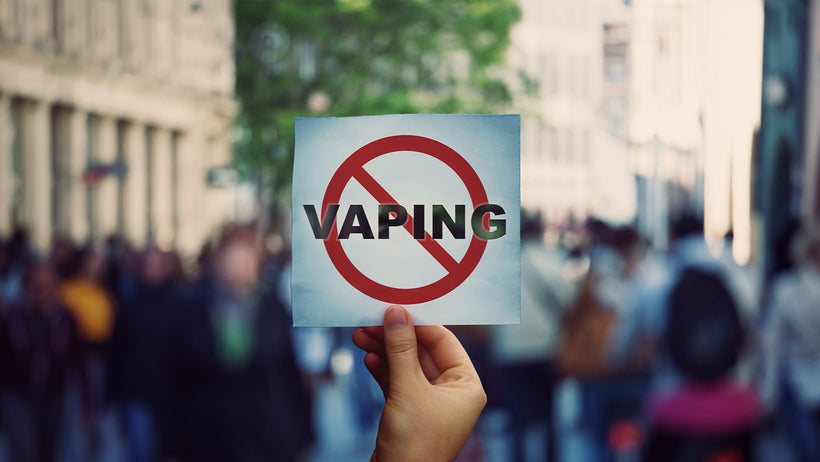
Where Are E-Cigarettes Banned? Places You Can Vape
If you are new to the exciting world of vaping, then you will have many questions about the topic. One of the most asked questions that we get is ‘where are e-cigarettes banned?’. This is an important question to address, as there are certain places where it is illegal to vape. There are clear laws about where you can and cannot smoke cigarettes, but the rules about vaping are not always as clear.
Vaping in Restaurants and Pubs
No law says that you cannot smoke inside restaurants, pubs or cafes. However, many do enforce a ban, which mainly includes chain companies (e.g. Mcdonalds’, Starbucks and Wetherspoons). Some smaller restaurants and pubs might allow you to vape inside, but you should always check with a staff member before doing so.
This blog post will provide you with more information about vaping in public places.
Vaping in Large Venues (Sports Stadiums and Music Venues)
There are no laws surrounding vaping in large venues, and each place will have its own rules. Many large venues will not allow you to vape and will be strict about the matter, and if you are caught you could be escorted out or banned from the premises. Some smaller venues will allow you to vape inside.
It is always important to check beforehand. For example, some venues will not allow you to vape inside but will allow it on certain occasions such as vape expos. Each stadium and event has its own rules. If you are ever unsure, you will find all of the relevant information on the website or staff members will know.
Are you new to vaping? Check out these great vape starter kits for beginners.
Vaping in Hospitals
Certain hospitals will have different rules about vaping. Generally, you are not allowed to vape inside of hospitals. However, some hospitals will allow you to use your e-cigarette in designated smoking spots. In Scotland, vapes are completely banned inside and outside of the hospitals. In most hospitals in England and Wales, you can vape in designated areas. It is always important to check before you start vaping, keep an eye out for signs or check the website.
Vaping on UK Transport
- Trains: Vaping is banned on public trains. Certain rail companies will allow you to vape on the platforms, whilst you wait for your train to arrive, however, you should always check for signs to see if this is allowed. For example, Network Rail and Virgin Trains have banned e-cigarettes on their platforms. Additionally, it is worth noting that vaping is banned on all of London’s public transport.
- Buses: Using e-cigarettes is banned on buses, but it is not illegal. Some coaches and small bus companies might allow you to vape on board, but you should always check before to avoid conflict or being asked to leave the bus. Stagecoach buses notably do not allow vaping on board.
- Planes: Many mainstream airlines have banned vaping, such as British Airways, Easyjet, Jet2, Ryanair, Thomas Cook and Virgin Atlantic. You cannot vape on planes and the vapour will set off alarms if you do so in the toilets. However, you can bring your e-cigarette on board for your flight, if the liquid inside of it is under 100 ml and inside of a sealable plastic bag. It is also important to check the laws surrounding e-cigarettes in the country you are travelling to as there are some countries where vaping is completely forbidden and others where there are tight restrictions.
What are Vaping Restriction Laws in the UK?
Vaping restrictions in the UK are not necessarily about where you can vape, but about the contents of the e-liquid.
- E-liquid must not exceed 10ml, and clearomisers, cartridges and tanks must be less than 2 ml.
- The maximum nicotine strength is 20%.
- All e-liquids must be government approved before being sold, and there is a 6 month grace period before the item can be purchased.
- It is against the law to purchase vape products if you are under the age of 18.
Read more on the government website about vaping laws and regulations in the UK.